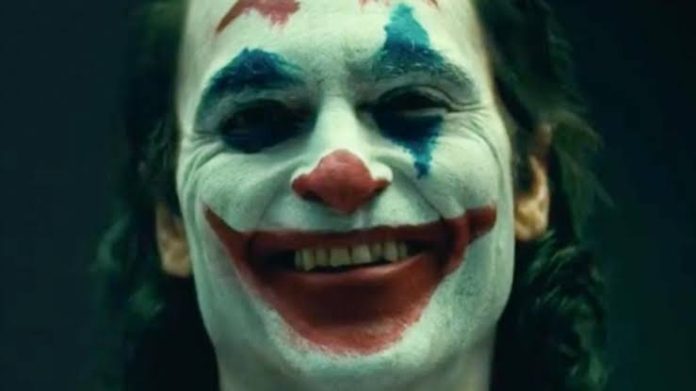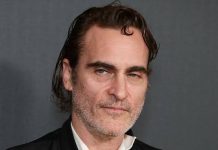Here’s a rundown of the Best Psychological Thrillers You Need to Watch that have left an indelible mark on our psyche. Psychological thrillers have a way of gripping audiences, playing with our
minds, and keeping us on the edge of our seats. The past decade has given us some exceptional films in this genre, blending intricate plots, intense character studies, and mind-bending twists.
Gone Girl

Starting slightly before our timeline but impossible to ignore, “Gone Girl” directed by David Fincher and based on Gillian Flynn’s novel, set a new standard for psychological thrillers. The film stars Ben Affleck and Rosamund Pike and delves into the complexities of a seemingly perfect marriage gone awry.
Amy Dunne’s (Pike) mysterious disappearance and the subsequent media frenzy turn the spotlight on her husband Nick (Affleck), who quickly becomes the prime suspect. The narrative’s unreliable perspectives and shocking twists keep viewers questioning the truth until the very end.
The Gift

Joel Edgerton’s directorial debut, “The Gift,” is a masterclass in slow-burn suspense. The story follows Simon (Jason Bateman) and Robyn (Rebecca Hall), a married couple whose lives are
upended when they encounter Gordo (Edgerton), an old acquaintance from Simon’s past. What starts as a series of awkward encounters quickly escalates into a tense psychological game, revealing buried secrets and testing the couple’s trust.
Split

M. Night Shyamalan returned to form with “Split,” featuring a mesmerizing performance by James McAvoy as Kevin Wendell Crumb, a man with 23 distinct personalities. The film follows three girls kidnapped by Kevin, who must navigate his various
identities to escape before a terrifying 24th personality, known as “The Beast,” emerges. McAvoy’s portrayal of the different personalities is nothing short of brilliant, and the film’s connection to Shyamalan’s earlier work, “Unbreakable,” adds an extra layer of intrigue.
Get Out

Jordan Peele’s “Get Out” redefined the psychological thriller genre with its sharp social commentary and unsettling atmosphere. The film stars Daniel Kaluuya as Chris, a young Black man who visits his white girlfriend’s family estate, only
to uncover a horrifying secret. “Get Out” masterfully blends horror, satire, and suspense, addressing racial tensions and systemic exploitation in a uniquely compelling way. The film’s ending is both shocking and satisfying, solidifying its place as a modern classic.
Hereditary

Ari Aster’s debut feature, “Hereditary,” is a deeply unsettling exploration of grief, family secrets, and inherited trauma. Toni Collette delivers a powerhouse performance as Annie, a mother grappling with the loss of her own mother and the
bizarre, terrifying events that follow. The film’s slow-build tension and shocking revelations create a haunting atmosphere that lingers long after the credits roll. “Hereditary” is not just a psychological thriller but a harrowing descent into madness.
A Quiet Place

Directed by John Krasinski, “A Quiet Place” presents a unique take on the psychological thriller, blending elements of horror and survival. The film is set in a post-apocalyptic world where blind creatures hunt by sound, forcing a family to live in silence.
The minimal dialogue heightens the tension, while the family’s struggle for survival creates an emotional core. Krasinski and Emily Blunt’s performances anchor the film, making it a gripping and heart-wrenching experience.
Parasite

Bong Joon-ho’s “Parasite” is a genre-defying masterpiece that blends dark comedy, social satire, and psychological suspense. The story follows the impoverished Kim family as they infiltrate the wealthy Park household, leading to unexpected and disastrous consequences.
The film’s meticulous direction and sharp commentary on class disparity earned it critical acclaim and numerous awards, including the Palme d’Or and the Academy Award for Best Picture. “Parasite” is a testament to the power of storytelling and its ability to reflect societal issues through a thrilling narrative.
Joker

Todd Phillips’ “Joker” offers a disturbing character study of one of DC Comics’ most iconic villains. Joaquin Phoenix delivers a haunting performance as Arthur Fleck, a failed comedian whose descent into madness transforms him into the infamous Joker.
The film’s gritty portrayal of mental illness and societal neglect creates a sense of unease that resonates throughout. “Joker” challenges viewers to empathize with a character typically seen as purely evil, making it a provocative and unforgettable psychological thriller.
The Invisible Man

Leigh Whannell’s “The Invisible Man” reimagines H.G. Wells’ classic story with a modern, psychological twist. Elisabeth Moss stars as Cecilia, a woman who escapes an abusive relationship, only to be tormented by her seemingly deceased ex-partner, who has discovered a way to
become invisible. The film expertly uses tension and suspense to explore themes of gaslighting and trauma, with Moss’s riveting performance anchoring the narrative. “The Invisible Man” is a chilling and timely psychological thriller that keeps viewers guessing.
Tenet

Christopher Nolan’s “Tenet” is a mind-bending thriller that plays with the concept of time inversion. John David Washington stars as the Protagonist, a secret agent tasked with preventing World War III through the manipulation of time.
The film’s complex narrative and stunning action sequences create a cerebral experience that demands multiple viewings. Nolan’s trademark storytelling and ambitious visuals make “Tenet” a standout psychological thriller of the decade.
The Night House

David Bruckner’s “The Night House” delves into the psychological horror of grief and loss. Rebecca Hall stars as Beth, a widow uncovering disturbing secrets about her late husband.
The film expertly blends supernatural elements with psychological suspense, creating an eerie atmosphere that keeps viewers on edge. Hall’s powerful performance and the film’s haunting narrative make “The Night House” a memorable addition to the genre.
Last Night in Soho

Edgar Wright’s “Last Night in Soho” is a stylish psychological thriller that transports viewers between present-day London and the swinging 1960s. Thomasin McKenzie stars as Eloise, a young woman who begins experiencing vivid
dreams of a glamorous fashion designer named Sandie (Anya Taylor-Joy). As Eloise’s dreams turn darker, she uncovers a sinister mystery that blurs the lines between reality and illusion. Wright’s direction and the film’s vibrant aesthetic create a visually stunning and suspenseful experience.
The Father

Florian Zeller’s “The Father” offers a deeply affecting psychological thriller centered on the experience of dementia. Anthony Hopkins delivers an Oscar-winning performance as Anthony, an elderly man whose grasp on reality begins to slip.
The film’s fragmented narrative and shifting perspectives immerse viewers in Anthony’s confusion, creating a poignant and unsettling exploration of memory and identity. “The Father” is a powerful and moving thriller that lingers in the mind.
The past decade has been a golden era for psychological thrillers, with filmmakers pushing the boundaries of storytelling and exploring the depths of the human psyche. Best Psychological Thrillers You Need to Watch captivate and challenge us, offering a thrilling escape while prompting
introspection and reflection. Whether through intricate plots, compelling characters, or innovative visuals, the best psychological thrillers leave a lasting impression, reminding us of the power of cinema to delve into the complexities of the mind.












